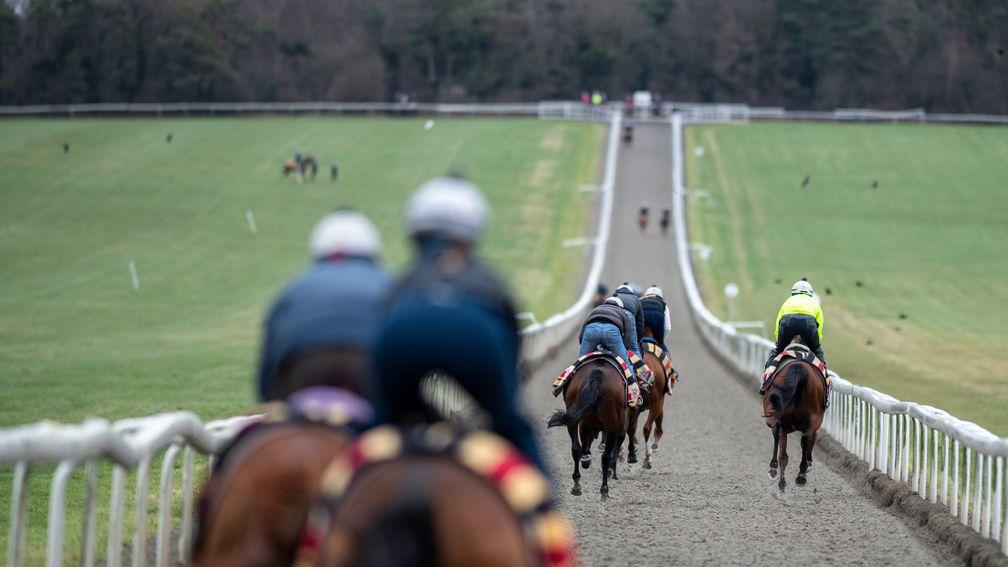'Equine Influenza in a training yard in Newmarket presents a significant risk'
Thoroughbred Breeders' Association releases updated guidelines

The news that four vaccinated horses at Simon Crisford's yard in Newmarket have tested positive for equine influenza (EI) represents "a significant risk for a Newmarket EI epidemic," said the Thoroughbred Breeders' Association on Monday.
In an update sent out to its members, the TBA update said: "The news that four racehorses have tested positive for equine influenza in a training yard in Newmarket presents a significant risk for a Newmarket EI epidemic occurring at the most difficult time of year for stud farmers, with foals being born and mares needing to be mated soon."
Despite the risk posed by positive cases in racing's headquarters, the TBA reaffirmed that the highly contagious disease is yet to have been identified on a thoroughbred stud in Britain.
Following consultation with its veterinary advisers, the TBA also supplied its members with four recommendations in light of the development. They are:
- Breeders consult their veterinary surgeons regarding their risk and the preventive measures that they should take, including quarantine facilities for incoming horses.
- All horses should be fully vaccinated with a UK licensed EI vaccine and any horse that has not been booster vaccinated within the last six months, should receive a booster vaccination now, unless showing signs of EI infection or being kept in contact with horses showing signs of EI infection (i.e., may be incubating EI). Maximum benefit is always gained by vaccinating pregnant mares in the last 4 to 6 weeks.
- There should be at least a seven-day period of quarantine before horses out of training enter stud farms, during which time they should be monitored in quarantine for clinical signs (dullness, raised temperature, coughing, nasal discharge). If horses show clinical signs they should be seen by a veterinary surgeon and tested for EI and maintained in isolation until they are shown to be no longer shedding virus.
- At the time of writing there is no evidence to suggest that EI is active on UK stud farms, but if you are travelling horses it is advisable to check for wellness, in particular for raised temperature, coughing and nasal discharge, before travelling. If at all concerned, you should consult your veterinary surgeon.
More studs issue new biosecurity measures ahead of breeding season
Published on inNews
Last updated
- Breeding right to Blue Point sells for €430,000 on Darley winning bid platform
- Classic hero Metropolitan set for strong home support with Etreham busy at the sales
- 'It has been nothing short of incredible' - Grace Hamilton on Godolphin Flying Start experience
- ‘She’s one of the best two-year-olds in Europe’ - bluebloods set to go down a storm at Arqana Breeding Stock Sale
- HRI announces academy hurdles for unraced three-year-olds starting next season
- Breeding right to Blue Point sells for €430,000 on Darley winning bid platform
- Classic hero Metropolitan set for strong home support with Etreham busy at the sales
- 'It has been nothing short of incredible' - Grace Hamilton on Godolphin Flying Start experience
- ‘She’s one of the best two-year-olds in Europe’ - bluebloods set to go down a storm at Arqana Breeding Stock Sale
- HRI announces academy hurdles for unraced three-year-olds starting next season